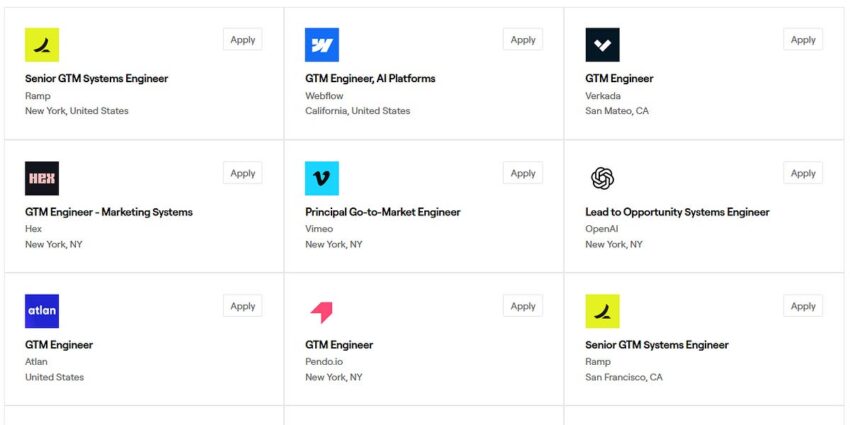TL;DR Summary of Why GTM Engineering Isn’t the Hottest Job of 2025 (Yet)
Optimixed’s Overview: The Emerging Landscape and Future of GTM Engineering Roles
Understanding GTM Engineering and Its Current Market Reality
GTM engineering — also known as GTM Ops, Growth Ops, or RevOps Engineering — is a role designed to bring automation, data-driven experimentation, and systems thinking to sales-led growth challenges. It targets friction points like ideal customer profile targeting, pipeline conversion, and customer acquisition cost reduction through scalable, automated plays. While the role has gained attention, actual hiring remains limited, with only a modest rise in job postings compared to established roles like RevOps or SalesOps.
Key Challenges and Market Dynamics
- Talent scarcity: Few professionals explicitly hold “GTM engineer” titles, making direct recruitment difficult. Many companies repurpose internal talent or rely on agencies.
- Uncertain ROI: Organizations hesitate to commit full-time resources without proven results, leading to outsourcing engagements with specialized agencies.
- Role ambiguity: GTM engineering blends skills across systems thinking, marketing, automation, and data analytics, overlapping with RevOps and RevTech but with an outcome-focused compensation model.
Future Outlook and Strategic Recommendations
As AI and automation tools become more accessible, the need for dedicated GTM engineers might diminish in favor of empowering existing GTM teams with next-gen tooling and AI skills. Companies should consider:
- Starting with agencies or consultants to validate GTM engineering value in targeted use cases.
- Redeploying internal employees with GTM context and system expertise to act as de facto GTM engineers.
- Reskilling GTM teams with AI and automation competencies to drive continual iteration and innovation.
- Investing in well-resourced RevOps or RevTech leadership to align systems and outcomes effectively.
Ultimately, GTM engineering is an evolving discipline reflecting broader trends toward automation, data-driven decision-making, and cross-functional collaboration in go-to-market strategies.
